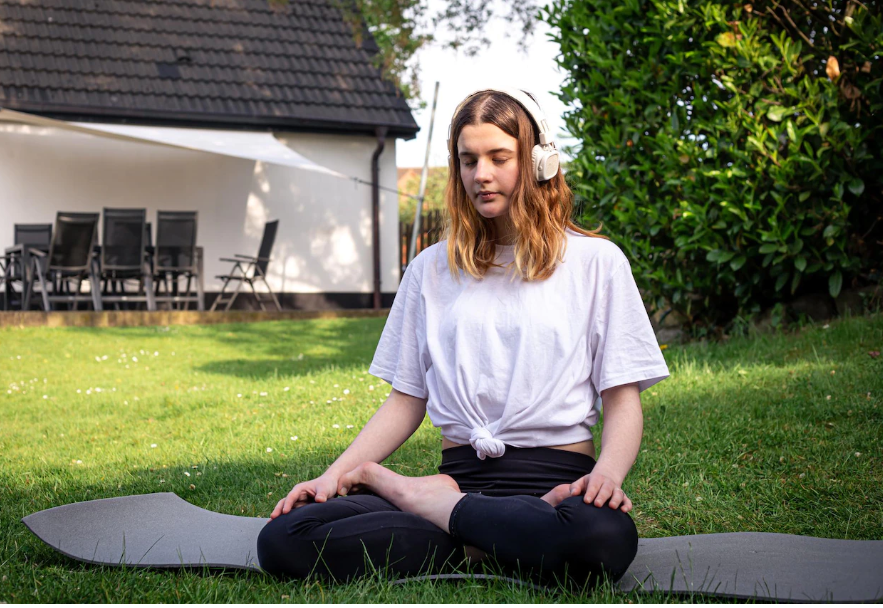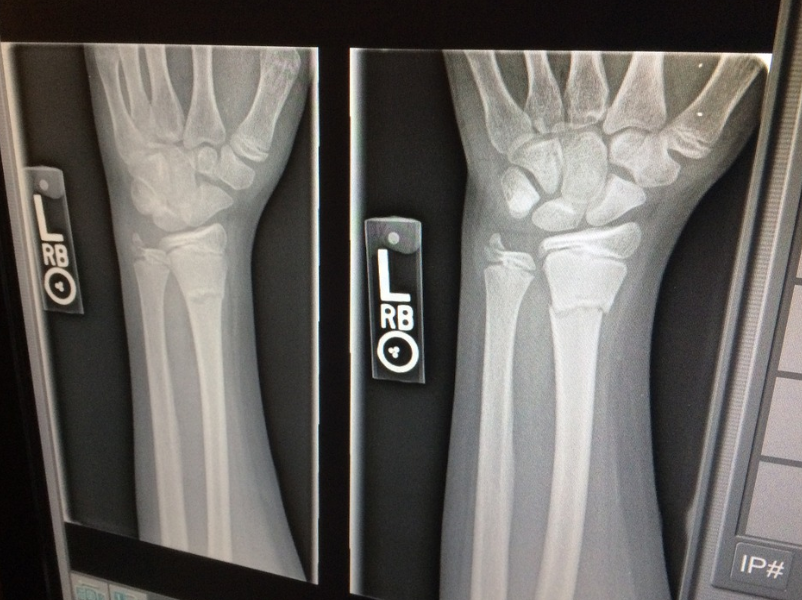Meditation to Calm Anxiety
Learn meditation techniques are effective in reducing anxiety and stress, but there are some drawbacks.

Selfpause Affirmation App
Download the app to get 1,000’s of affirmation meditations and everything you need to write, record and listen to your own.
If you are looking for ways to calm anxiety naturally, you might try meditation. Meditation techniques are effective in reducing anxiety and stress, but there are some disadvantages. Some people may experience irrational or negative thoughts while meditating, so it is important to find a trained teacher or mental healthcare provider.
Binaural beats meditation

Binaural beats are similar to music, and some studies have shown that listening to them can help you calm anxiety. In one study of mildly anxious people, binaural beats significantly decreased their anxiety levels. Another study in Europe showed that participants who listened to binaural beats had better sleep and decreased their level of pain.
Binaural beats are not a substitute for traditional anxiety treatment, but a supplement. You can listen to these recordings as often as you like for a number of days or even weeks. Many users have reported a reduction in their anxiety symptoms after a few days. However, the clinical benefits of binaural beats are not fully understood, and further research is necessary.
Despite its widespread use, binaural beat meditations may not be for everyone. It can help you relax, cope with a variety of health conditions, achieve goals, and stick with healthy habits. However, be aware that binaural beats meditations can stimulate several responses in the body and cause various chemicals to be produced. Although they are generally safe, they are not recommended for people with pacemakers, epilepsy, or irregular heartbeats.
Binaural beats therapy works by stimulating the alpha brainwave frequency (roughly 7-13 Hz) in the brain. These waves help to promote relaxation and positive thinking, as well as boost the performance of cognitive tasks. Furthermore, binaural beats in the beta wave range have been shown to increase memory and concentration.
While binaural beats aren’t for everyone, they may be helpful in reducing anxiety and improving your sleep. Binaural beats are a convenient way to relax, reduce stress, and sleep better.
Body scan meditation

Body scan meditation helps to calm anxiety by identifying physical sensations in the body. It trains the mind to be present and focused. It also helps the mind tune into emotions and internal somatic sensations. It is an excellent practice for people suffering from anxiety or generalized anxiety disorder. The process can help a person cope with a wide variety of emotional and physical issues.
This meditation can be done anywhere and at any time. For best results, try to practice it in a place where you will be undisturbed. Avoid setting specific goals; just focus on your sensations and let stress go. You can start by scanning your head downwards, then continue scanning your body as you breathe in and out.
Once you have determined the places where you are experiencing tension, start focusing your attention there. Visualize the tension leaving your body. Make a note of what you observe. After a few minutes, you can move on to the next area. If you are not able to sit still for the whole time, you can try practicing body scan meditation in a different part of the body.
Body scan meditation can be done for a short amount of time each day. It is very easy to do and can help you relax. It is also helpful for people who feel tense in various situations. Practicing this meditation can help people who are suffering from anxiety or generalized anxiety disorders.
Practicing body scan meditation can reduce the symptoms of anxiety and help people cope with chronic pain. It can also help people relax more and improve their sleep. The method was developed by certified psychiatrist Zlatin Ivanov.
Mindfulness meditation

Practicing mindfulness meditation is a great way to calm anxiety and settle racing thoughts. The technique involves paying attention to your surroundings and breathing. As you meditate, your neurotransmitters will return to their optimal levels. Your body will also be calmer and your anxiety will decrease. Practicing mindfulness meditation can help you feel better in a variety of situations, from stressful situations to everyday life.
While this technique does not solve all of your anxiety issues, it is helpful in many cases. For example, you can try setting a timer to do something specific for five minutes. By doing this, you can be mindful that you are only doing one task at a time. You cannot multitask during this time.
In order to practice mindfulness meditation, you must first establish some mindfulness. By practicing mindfulness, you must train your mind to focus on the present moment without judging yourself. It is important to practice it regularly to see the full benefits of this method. It will not only relieve your anxiety, but it can also help you manage other conditions like pain and other health conditions.
If you’re not sure how to start, you can start by listening to a guided meditation. This technique helps people reduce their anxiety levels by increasing their sense of control. It can also improve their general well-being and optimism. A meditation guide walks you through the process and can help remind you to stay focused.
Several universities and medical centers offer guided meditation sessions. You can also try an app. Some apps offer a wide variety of binaural beats meditations. A few of these meditations are specifically geared toward helping people manage anxiety.
Mindful inquiry

Mindful inquiry meditation is a method for calming anxiety that encourages an investigation into one’s feelings, emotions, and thoughts. It fosters insight and deep understanding of a person’s experience by bringing a sense of nonjudgment into a person’s awareness. Using this method helps a person gain a sense of empowerment and confidence.
The first step in this meditation is to gently relax around the feeling of anxiety. This allows you to become curious about how it changes over time. You can also stay with the sounds and sights surrounding you, such as the ground beneath your feet. By focusing on these experiences, you can more easily recognize why they’re making you feel anxious and how they can be resolved.
Next, you can start guided meditation. Take your time to decide whether it’s the right time to begin. If you’re not ready, try a few minutes of mindful breathing first. Once you feel comfortable, try the guided meditation again later. When you’ve finished, thank yourself for doing the meditation, and send loving-kindness to yourself and others.
While practicing mindful inquiry, you can practice your breathing by focusing on your abdomen and the tip of your nose. This way, you’ll be able to feel the air in your belly and how it expands and contracts when you breathe. This is an excellent exercise for calming your body and your mind.
The benefits of mindfulness meditation are well documented. One study from the University of Waterloo shows that a mere 10 minutes of mindfulness training can reduce ruminative thoughts. The study involved 82 participants who had regular disruptions while working on a computer task. The participants then either listened to a 10-minute guided meditation or listened to an audiobook. After 10 minutes, the interruptions resumed.
Mindfulness-based stress reduction

Many people are now turning to meditation to calm anxiety and mindfulness-based stress reduction as an effective way to combat anxiety. While this concept is becoming a buzzword these days, it actually has been around for nearly 40 years. MBSR is a systematic training program that teaches participants to practice nonjudgmental awareness and reduce stress. Originally developed by Jon Kabat-Zinn to help those suffering from chronic illnesses, it has proven to have a positive impact on the mental health and quality of life of its participants.
MBSR is a group therapy program that teaches people how to cultivate a state of mindfulness through the practice of meditation. This Buddhist state of being fosters the ability to pay attention to the present moment, sustain attention, and accept whatever is happening. This type of practice has been proven to reduce symptoms of anxiety, and depression, and even improve relationships.
In addition to reducing symptoms of anxiety, mindfulness-based stress reduction has been shown to improve self-compassion. Patients who practice mindfulness-based stress reduction have higher levels of self-compassion and lower levels of chronic stress. They also experience less confusion and emotional irritability and have less habitual patterns of stress.
Researchers at Case Western Reserve University have reported that mindfulness-based stress reduction can reduce stress and anxiety levels. The research also found that meditators experienced a decrease in their risk of developing inflammatory diseases. Additionally, meditators were less likely to develop depression, which is an inflammatory disease.
Using mindfulness-based stress reduction techniques and meditation to calm anxiety can help people manage anxiety and panic attacks. These techniques can be practiced at any time of day and are easy to learn.
Our Top FAQ's
Meditation can help with anxiety by promoting relaxation and reducing stress. By focusing on the present moment and letting go of worries and negative thoughts, meditation can help calm the mind and promote a sense of inner peace.
Some effective meditation techniques for reducing anxiety include deep breathing, progressive muscle relaxation, and mindfulness meditation. Deep breathing involves focusing on the breath and taking slow, deep breaths to relax the body and calm the mind. Progressive muscle relaxation involves tensing and then relaxing each muscle group in the body to release tension and promote relaxation. Mindfulness meditation involves bringing the focus to the present moment and observing thoughts and feelings without judgment.
Meditation can be a useful complementary treatment for anxiety, but it is not recommended to use it as a replacement for anxiety medication without consulting with a healthcare provider. Medication can be an effective treatment for anxiety and can provide quick relief in times of intense distress.
The frequency of meditation for anxiety relief will vary depending on the individual and their needs. Some people may find that daily meditation helps to manage their anxiety, while others may only need to practice it a few times a week. It is important to listen to your body and find a practice that works for you.
There are generally no major drawbacks or risks to using meditation for anxiety relief, but it is always a good idea to consult with a healthcare provider before starting any new treatment. Some people may find that meditation causes them to feel more anxious or uncomfortable, in which case they should stop practicing it and seek guidance from a professional.
